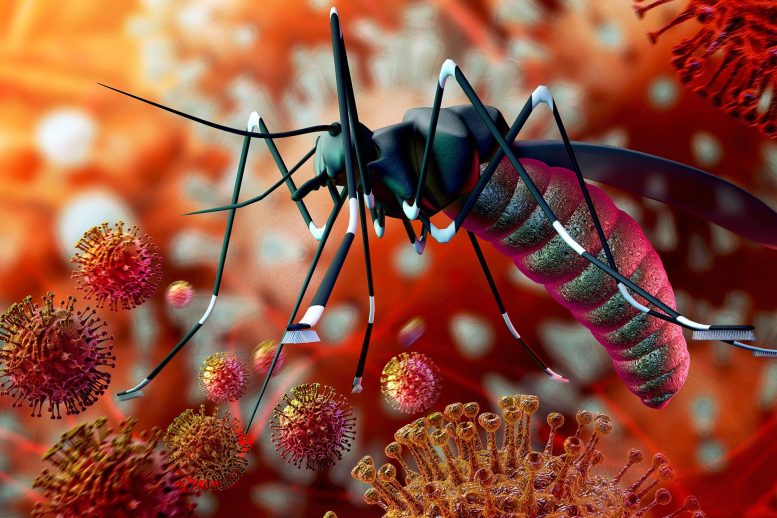A team of researchers has found that malaria parasites sync their internal rhythms with those of their human hosts. This discovery could potentially lead to the development of new anti-malarial drugs that disrupt this synchronization, essentially “jet-lagging” the parasites and making it easier for the immune system to combat them.
The research could lead to the development of new anti-malarial drugs, which operate by inducing a “jet lag” effect on the parasites responsible for the disease.
Health authorities have cautioned that the rise of drug resistance might reverse recent advancements in combating malaria, specifically in Africa and Southeast Asia. In the pursuit of alternate methods to combat the disease-inducing parasites transmitted by mosquitoes, researchers have now identified a potential new target: biological clocks.
Almost all living creatures possess innate clocks that manage variations in everything from appetite and hormone concentrations to the timing of gene activity throughout the day.
In a study published June 6 in the journal Proceedings of the National Academy of Sciences, researchers analyzed gene activity in patients who showed up at medical facilities along the Thailand-Cambodia border, showing signs of malaria infection in their blood.
The team found that malaria parasites somehow sync their molecular rhythms with the internal 24-hour clocks of their hosts, their respective genes rising and falling in perfect lockstep with each other over the course of a day, like two pendulum clocks with synchronized swings.
The team of researchers at Duke University, Florida Atlantic University, and the Armed Forces Research Institute of Medical Sciences say the findings could pave the way to new anti-malarial drugs that throw malaria’s internal clock out of step with its host, essentially “jet-lagging” the parasites.
“We have a reason to care about this,” said senior author Steve Haase, professor of biology at Duke. “We’re on our last line of drugs, artemisinin-based combination therapies, and we’re already seeing resistance to those in southeast Asia. Exploring some new ideas for fighting malaria makes sense.”
When someone has malaria, a deadly loop repeats itself inside their body. The disease’s recurring fever spikes are caused by microscopic Plasmodium parasites that invade the person’s red blood cells, multiply, and then burst out in unison, spewing into the bloodstream by the millions to invade other cells and begin the cycle anew.
This cycle repeats itself every 24, 48, or 72 hours depending on the Plasmodium DOI: 10.1073/pnas.2216522120
The study was funded by the Defense Advanced Research Projects Agency, the











